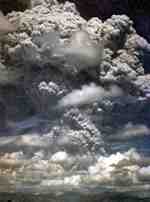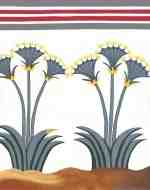Art
Advertising
- Advertising
- Tin (Cassiterite) Distribution: Mediterranean Bronze Age
- Archaeological Sites of the Aegean Minoans
- Extent of Santorini Eruption's Tsunami Inundation of Minoan Crete
- End of Minoan Linear A Writing and LM IB Fire Destruction of Crete
-
The Cause of the End of the Bronze Age
with the Scientific Method -
Nature Geoscience Journal and
Late Minoan IB Destruction Event - Prehistoric Star Navigation, Eastern Mediterranean Ethnocentric Bias, and the "Cabal of Certainty"
- Theoretical Bronze Age Minoan Heliographic Aegean Network Validated by 92.15 Mile (148.3 Km) Mirror Sunlight Flashes
- The Validation of a Bronze Age Minoan Heliographic Aegean Network in Southern California
- Tsunami Generation from the Titanic Bronze Age Minoan Eruption of the Santorini Marine Volcano
- The Cento Camerelle Mines of Tuscany: A Major Bronze Age Source of Tin
- No Men or Sails Required: Successful Prehistoric Sea Travel
- Minoan Downfall and Volcanology's Black Hole of Unknowns
- Homer and Navigating by the Stars in Prehistory
- Primacy of Human Powered Rowing in Copper Age and Minoan Shipping
- Minoan Invention of the True Dome and Arch Prehistoric Mediterranean Catenary Architecture
- "Sinking Atlantis" Tsunami Myth Debunked
- Minoan Tholos Structural Mechanics and the Garlo Well Temple
- Minoan Web of Mirrors and Scripts
- Santorini Eruption and LM IB Destruction
- Minoan Catastrophe: Pyroclastic Surge Theory
- Early Minoan Colonization of Spain
- Origin of the Sea Peoples
- Minoan Ship Construction
- Minoan Maritime Navigation
- Ringed Islands of Thera, Santorini, Greece
- Minoan Scientific Tradition
GIS Google Earth
Publications
Publications
Official Art Gallery
A Collection of 20 Paintings each with over 70 Art Products

Line-of-Sight between Mt Wilson & High Point Lookout
Southern California, US
92.15 Miles, 148.3 Kms
September 21, 2019
Credit - Image Postprocessing and Annotation by
Richard Fowell from Video by Pat Walters
Credit - Mt. Wilson Mirror(s) - Norman Vargas
Southern California, US
92.15 Miles, 148.3 Kms
September 21, 2019
Credit - Image Postprocessing and Annotation by
Richard Fowell from Video by Pat Walters
Credit - Mt. Wilson Mirror(s) - Norman Vargas
Any theoretical "Bronze Age Minoan Heliographic Network" in the Aegean has been proven valid by teams from Varsity Scouting Operation On-Target stationed on Mt. Wilson with Norman Vargas operating the mirror(s) and at High Point Lookout with Videographer Pat Walters and Scout Advisor Richard Fowell in Southern California with mirror flashes of redirected sunlight at a distance of 92.15 Mile (148.3 Kms) on Sep. 21, 2019 under quite adverse conditions of particulate haze most probably from nearby wildfires to the west of the line-of-sight in the Santa Ana Mountains.

Proposed Backbone of a Theoretical Minoan
Heliographic Communications Network in the Aegean
Heliographic Communications Network in the Aegean
The longest functional mirror link with no intermediate land masses in my proposed Minoan Heliographic Network in the Aegean Sea is between the peak of Profitas Ilias on Santorini (Thera) and Mt. Youkhtas just south of Knossos at 79.9 miles (128.6 kms). The next longest link is from Profitas Ilias and Karfi on Crete at 79.3 miles (127.6 kms). The Varsity Scouting's 92.15 mile (148.3 kms) mirror link well exceeds this. It even exceeds the theoretical link I proposed in 2010 between Naxos and Samos which easily could have been greatly reduced by an intermediate link on the islands of Ikaria or Fournoi. Therefore all mirror links for a fully functional Minoan heliographic network in the Aegean have been proven possible. This network was well within the Minoan's technological capability especially now that we definitively know they possessed Bronze mirrors that were equilvalent to our modern aluminum glass mirrors.

Varsity Scouting Operation On-Target
One of Five Mirror Flashes of Redirected Sunlight
from Mt. Wilson to High Point Lookout
Southern California, US
92.15 Miles, 148.3 Kms
during Atmospheric Particulate Haze from Nearby Fires
using either a 12"x12" (30.5cm x 30.5cm) or an
approx. 16"x28" (40.6cm x 71.1cm) Vanity Mirror
Unable to Determine which Mirror was Used in Image
September 21, 2019
Credit - Image Postprocessing and Annotation by
Richard Fowell from Video by Pat Walters
Credit - Mt. Wilson Mirror(s) - Norman Vargas
One of Five Mirror Flashes of Redirected Sunlight
from Mt. Wilson to High Point Lookout
Southern California, US
92.15 Miles, 148.3 Kms
during Atmospheric Particulate Haze from Nearby Fires
using either a 12"x12" (30.5cm x 30.5cm) or an
approx. 16"x28" (40.6cm x 71.1cm) Vanity Mirror
Unable to Determine which Mirror was Used in Image
September 21, 2019
Credit - Image Postprocessing and Annotation by
Richard Fowell from Video by Pat Walters
Credit - Mt. Wilson Mirror(s) - Norman Vargas

Varsity Scouting Operation On-Target
Enhanced Image of
One of Five Mirror Flashes of Redirected Sunlight
from Mt. Wilson to High Point Lookout
Southern California, US
92.15 Miles, 148.3 Kms
during Atmospheric Particulate Haze from Nearby Fires
September 21, 2019
Credit - Image Postprocessing and Annotation by
Richard Fowell from Video by Pat Walters
Credit - Mt. Wilson Mirror(s) - Norman Vargas
Enhanced Image of
One of Five Mirror Flashes of Redirected Sunlight
from Mt. Wilson to High Point Lookout
Southern California, US
92.15 Miles, 148.3 Kms
during Atmospheric Particulate Haze from Nearby Fires
September 21, 2019
Credit - Image Postprocessing and Annotation by
Richard Fowell from Video by Pat Walters
Credit - Mt. Wilson Mirror(s) - Norman Vargas
The Varsity Scouting Operation On-Target in Southern California conducts two heliographic mirror signaling activities every year. These events are organized by Richard Fowell and take place on the 3rd Saturday of July and September every summer. The above images were taken on September 21, 2019 and show one of five mirror flashes of redirected sunlight from Mt. Wilson taken by a telephoto video camera at High Point Lookout by Pat Walters during quite poor atmospheric conditions using either a relatively small 12"x12" (30.5cm x 30.5cm) mirror or a larger approximately 16"x28" (40.6cm x 71.1cm) "Retail Vanity Mirror" operated by Norman Vargas a research technician at Georgia State University's Center for High Angular Resolution Astronomy (CHARA) Array at the Mount Wilson Observatory. Scout Advisor Richard Fowell, who was located at High Point Lookout stated, "I don't think we would have caught these flashes with our naked eyes." but "However, with less haze, I'm sure we'd have been fine."

The Minoan Web of Mirrors and Scripts
The validation process for an ancient Bronze Age Minoan Heliographic network in the Aegean is based on my research and publication from some years ago of "The Minoan Web of Mirrors and Scripts". I realized a mirror-based heliographic network was possible in the ancient Aegean Sea area where I lived for a time, especially with the knowledge that a "High-Tin" Copper alloy could produce a Bronze mirror with >= 85% reflectivity to visible light. Modern glass mirrors also have a reflectivity of >= 85% to visible light, therefore they are equivalent to the Bronze metal mirrors used during the Bronze Age.

Along with the Griffin Warrior Bronze Mirror
from Pylos in the Peloponnese on Mainland Greece
Yet another Bronze Mirror has been Discovered
by the Sissi Archaeological Project
on the northern Coast of Crete
in the Southern Aegean Sea, Greece
from Pylos in the Peloponnese on Mainland Greece
Yet another Bronze Mirror has been Discovered
by the Sissi Archaeological Project
on the northern Coast of Crete
in the Southern Aegean Sea, Greece
The confirmed distance between the High Point Lookout videographer and the Mt. Wilson mirror flashes is 92.15 miles (148.3 Kms). The longest "functional" link of any Aegean heliographic network is between the peak of Profitas Ilias (elev. 525m, 1,722 ft.) on Santorini (Thera) and Mt. Youkhtas (elev. 783m, 2,569 ft.) just south of Knossos on Crete is a distance of 79.9 Miles (128.6 Kms). The mirror flashes between Mt. Wilson and High Point Lookout well exceed this by 12.25 miles (19.7 Kms).

The Longest Link in Proposed
Bronze Age Minoan Heliographic Network
Profitas Ilias Peak, Santorini (Thera) and
Peak Sanctuary Mt. Youkhtas, Crete
79.9 Miles (128.6 Kms)
Southern Aegean Sea, Greece
Bronze Age Minoan Heliographic Network
Profitas Ilias Peak, Santorini (Thera) and
Peak Sanctuary Mt. Youkhtas, Crete
79.9 Miles (128.6 Kms)
Southern Aegean Sea, Greece
The Most Important Use of Mirrors Redirecting Sunlight
is as Life-Saving Rescue Devices
is as Life-Saving Rescue Devices

Kushila Stein was saved by the Hellenic Coast Guard
after using a signal mirror reflecting sunlight to alert them
of her position 101 Kms (~ 55 nautical miles) north of Crete
after using a signal mirror reflecting sunlight to alert them
of her position 101 Kms (~ 55 nautical miles) north of Crete
While mirrors have been used for millenia for a myriad of purposes there's nothing more vital than their use as life-saving rescue devices. At the beginning of Novermber 2019 Kushila Stein, a native of New Zealand, had been shopping on the Greek island of Folegandros in the Aegean Sea, about 24 miles (38.6 Kms) northwest of Santorini, and was making her way back to her yacht when she lost her dinghy's oar over the side. In the dark, strong Northerly winds blew her out to sea and drowned out her shouts for help. After 37 hours at sea over two nights she was saved by the Hellenic Coast Guard after using a signal mirror reflecting sunlight to alert them of her position about 101 Kms (~ 55 nautical miles) north of Crete.
Concluding Remarks
The above mirror flash(es) were taken under very adverse conditions of fairly dense particulate haze from nearby wildfires which are a frequent occurrence in Southern California. Any continuation in the future of long-range mirror link experiments by the Varsity Scouting Operation On-Target group and their advisor Richard Fowell will hopefully take place in much more favorable atmospheric conditions with confirmable larger mirrors perhaps in the size range of 24"x36" (~61cm x 91cm) or above.
The accumulation of particulate haze from wildfires in the skies over the Aegean Sea is quite rare. Therefore, as it was for the Bronze Age Minoans, the Aegean Sea region is much more optimal for the purpose of mirror signaling of redirected sunlight as a long-range communications device. Therefore, these mirror flashing/signaling experiments should also be enthusiastically encouraged and undertaken by like-minded people and groups in Greece with a desire to recreate the theoretical Bronze Age Minoan technological heritage in the Aegean Sea region.
The accumulation of particulate haze from wildfires in the skies over the Aegean Sea is quite rare. Therefore, as it was for the Bronze Age Minoans, the Aegean Sea region is much more optimal for the purpose of mirror signaling of redirected sunlight as a long-range communications device. Therefore, these mirror flashing/signaling experiments should also be enthusiastically encouraged and undertaken by like-minded people and groups in Greece with a desire to recreate the theoretical Bronze Age Minoan technological heritage in the Aegean Sea region.
Richard A. Fowell's
Signal Mirror and Heliography Reference
Signal Mirror and Heliography Reference

Richard A. Fowell's
Youtube Heliographic Channel
Youtube Heliographic Channel
November 20, 2019
W. Sheppard Baird
Copyright © 2007, 2024 W. Sheppard Baird
All Rights Reserved
All Rights Reserved
-

Knossos Palace Reconstruction
Crete, Greece
-

Master Seal Restoration
Chania, Crete, Greece
-

Minoan Ladies in Blue Fresco
Knossos, Crete, Greece
-

Master Seal Impression
Chania, Crete, Greece
-

Minoan Gold Ring
Crete, Greece
-

Mt. Pinatubo Eruption
Luzon, Phillipines, 1991
-

Minoan Dolphins Restoration Fresco
Knossos, Crete, Greece
-

Minoan Gold Seal
Crete, Greece
-

Golden Ibex
Akrotiri, Santorini (Thera), Greece
-

Minoan Antelope Restoration Fresco
Akrotiri, Santorini (Thera), Greece
-

Minoan Sea Daffodils Restoration Fresco
Akrotiri, Santorini (Thera), Greece